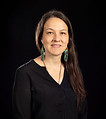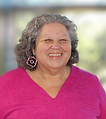Key People

Dr Deborah Heke
Ngā Puhi, Te Arawa. Associate Professor at Ngā Wai a Te Tūī Māori and Indigenous Research Centre at Unitec Institute of Technology. Her research explores Māori and Indigenous women’s embodied practices and physical activity as a means for connecting, communicating, and healing. She is passionate about building the capability and capacity of Māori and Indigenous scholars and providing spaces for Indigenous creativity and excellence in academia. Her biggest role is being Māmā to her young daughter, Āria.

Lillian Mato Bartlett
Ngati Tuwharetoa, Te whanau a Apanui, Ngati Tahu Ngati Whaoa, Te Arawa. Aspiring Kaupapa Maori Researcher withTaupua Waiora - Centre for Māori Research at Auckland University of Technology. Her research interests centre on social change initiatives that restore cultural identities in relation to health and wellbeing; particularly in youth sports development. Her passions include conceptualising emerging disruptive technology grounded in Indigenous knowledges and the flourishing of cultural narratives for Māori women and their families.

Meretini Bennett-Huxtable
Mōkai Pātea, Atihaunuiapaparangi, Ngāti Rangi, Tuwharetoa, Maniapoto, Tainui, Raukawa au ki te Tonga. Maramataka (Māori lunar system) practitioner working in the area of Indigenous solutions as transformational for Indigenous people. Change agent strategist in Systems change and innovation advocating for Mātauranga Māori Systems as prevention solutions for Hauora (wellbeing).
https://www.maramatakainaction.com/

Mei Linn Park
Native Hawaiian. Bachelor of Business Administration and a Master of Social Work from the University of Hawaiʻi at Mānoa, where she is currently a PhD in Social Welfare candidate. Her research areas of interest include Native Hawaiian health, healing, and wellness as well as culturally informed interventions. Mei Linn was born and raised in Waialua, Oʻahu. She is a mother, freediver, Jiu-Jitsu competitor, yogi, social worker, and a student of life. She aspires to share her passions, inspire others, and help the people of Hawai‘i to thrive for generations to come

Associate Professor Nicole Redvers
Deninu K’ue First Nation (Canada). Nicole has worked with Indigenous patients, scholars, and communities around the globe her entire career. She is an Associate Professor, Western Research Chair, and Director of Indigenous Planetary Health at the Schulich School of Medicine & Dentistry at Western University. She has been actively involved at regional, national, and international levels promoting the inclusion of Indigenous perspectives in both human and planetary health research and practice.
https://www.nicoleredvers.com/

Dr Jo Qina'au
Kanaka ‘Ōiwi. UCSF Osher Center. Jo was born and raised in ‘Ewa Beach on O‘ahu, with ancestral roots in Kohala on Hawai'i island; Fukushima, Japan; Indigenous Ainu Moshiri; the Azores, Portugal; Clare, Ireland; and Jewish Bavaria, Germany. Jo's work centres on leveraging research to bring culturally sustaining and integrative prevention and treatment programs to Indigenous and minoritized groups (e.g., SGM, global majority) to address transdiagnostic symptoms of multi-level traumatic stress and nourish wellbeing - all with the vision of collective liberation.
https://www.pilinacenterforwellbeing.com/joqinaaubio

Associate Professor Lana Whiskeyjack
Lana is an accomplished nehiyaw scholartist from Saddle Lake Cree Nation. She is known for her collaborative creative work in the disciplines of Indigenous knowledge, cultural revitalization, and spirit-centered community-based research exploring gender and sexual diversity through cultural and land-based experiential learning and arts-based practices. She is an associate professor in the Department of Women’s and Gender Studies, Faculty of Arts at the University of Alberta, Treaty 6 Territory, Canada.

Christina Chakanyuka
Christina is a Métis mother of three who grew up on Dene, Cree, and Métis (Treaty 8) homelands in Fort Smith, NT. As a doctoral student in the School of Nursing at the University of Victoria, her work centres Intergenerational Indigenous nurse mentorship and wellness with/in community, Indigenous health nursing education and research, truth before reconciliation = anti-racism before cultural safety, we are all stronger together.
https://www.uvic.ca/hsd/nursing/people/faculty/profiles/chakanyuka.php

Dr Melissa Vera
Assistant Professor at Washington State University's College of Nursing and the Elson S. Floyd College of Medicine. She is a citizen of the Tsm'syen and Yaqui First Nations and her research focuses on the intersections of Indigenous health, climate change, and land-based healing using Indigenous research methodologies. Before becoming an Assistant Professor, Dr. Vera practiced as a registered nurse in the hospital and clinic setting, while also working as a medical writer and editor. She earned her BA in English/Creative Writing from Seattle University, her BSN from Boise State University, and her PhD in Nursing Science from the University of Washington.

Distinguished Professor Bronwyn Carlson
Aboriginal person and the Head of the Department of Critical Indigenous Studies at Macquarie University. She has been awarded three consecutive Australian Research Council (ARC) grants focused on Aboriginal and Torres Strait Islander engagements with digital technologies including social media. She is the founding and managing editor of the Journal of Global Indigeneity and the Director of The Centre for Global Indigenous Futures.
https://researchers.mq.edu.au/en/persons/bronwyn-carlson

Dr Innez Haua
Ngāti Porou; Ngāi Tāmanuhiri; Rongowhakaata; Te Aitanga-a-Māhaki; Ngāti Kahungunu. Lecturer in Department of Indigenous Studies at Macquarie University. Her research focus includes Indigenous diasporas and the entangled histories and futures of Indigenous relationalities and Indigenous cultural sustainability.

Chelsea Cunningham
Ngāti Kahungunu, Ngāti Tūwharetoa, Kai Tahu, Ngāi Nauru. Chelsea is a dedicated Māori health researcher currently in the final stages of her PhD and Kaiārahi at Toi Tangata. Raised in Heretaunga, she has always held a deep passion for physical activity. Her postgraduate research has focused on whānau engagement with whakapapa, ancestral land, and seascapes. Her true passion lies in enhancing whānau well-being by reconnecting with and understanding the profound influence of whakapapa and identity on overall health and well-being.
https://toitangata.co.nz/about/kaimahi/

Associate Professor Tricia McGuire-Adams
Anishinaabekwe from Bingwi Neyaashi Anishinaabek and Associate Professor with the Faculty of Kinesiology and Physical Education at the University of Toronto. Her scholarship is rooted in physical cultural studies and Indigenous studies where she uses Indigenous research methodologies to research Indigenous health, wellbeing, and physical activity from Indigenous decolonization and resurgence frameworks.
http://www.triciamcguireadams.com/

Arianna Nisa-Waller
Ngāi Te Rangi, Ngāti Ranginui, Ngāpuhi.
Arianna is a kaupapa Māori researcher with experience undertaking women's health rangahau with a focus on improving perinatal outcomes for whānau Māori and indigenous populations.
https://www.linkedin.com/in/arianna-nisa-waller-54266a7a/?originalSubdomain=nz

Dr Yuria Celidwen
Indigenous scholar of Nahua and Maya lineages from the highlands of Chiapas, Mexico. Yuria's work centres on researching Indigenous forms of contemplation and the transcendent experience embodied in prosocial behavior (reverence, ethics, compassion, and a sense of awe, love, and sacredness). I call this thesis the “ethics of belonging” toward planetary flourishing and a path of meaning and participation.

Kyla Haggith
Kyla is an Indigenous (Michel First Nations) nursing scholar and PhD student with the University of Washington School of Nursing. She has a BS from the University of Washington in Speech and Hearing Sciences and a BSN from the University of Colorado. Her area of study is Occupational and Environmental Health Nursing with a focus in Total Worker Health and enhancing the narratives of people with disabilities in the workforce. She aspires to continue to highlight voices in the indigenous communities and continue to advocate for improved planetary health.
